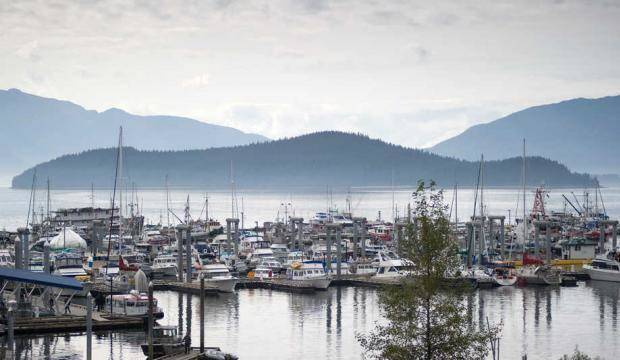The National Transportation Safety Board is focusing on the fuel system of an Alaska Seaplanes aircraft that crashed in Auke Bay Aug. 14 as it seeks the cause of the accident.
A preliminary report was released late last month; a final report will be released within a year, said Clint Johnson, head of the NTSB’s Alaska aviation office.
“We are examining the fuel system, so that’s one of the things that could take a little longer,” he said by phone from Anchorage.
Noreen Price is the NTSB’s lead investigator on the accident. She was traveling from Washington, D.C. back to Alaska and was not immediately available on Thursday.
“That’s one of the things she’s looking at,” Johnson said of Price’s work on the fuel system.
Price’s preliminary report, dated nine days after the Aug. 14 crash into Auke Bay, states that plane’s pilot reported taking off from Haines toward Juneau with 26 gallons of fuel in the aircraft’s right fuel tank.
He used that tank for the entire flight, but three miles from the Juneau runway and 900 feet up, “the engine fuel flow reduced to almost zero and the engine lost all power,” the report states.
The pilot, Josh Poirier, immediately switched to the left fuel tank and activated the boost pump, but the engine didn’t restart. Poirer successfully landed the plane near the southeast corner of Coghlan Island. He and all four passengers aboard swam to the island and were rescued without injury within 30 minutes.
The plane sank in about 70 feet of water, and when investigators recovered it, they found two gallons of fuel left in the right tank. According to the manual of the Cessna 206 that crashed, the last two gallons of fuel within the tank are unusable under normal operations.
Investigators were able to run the plane’s engine after recovering it from the ocean and changing its wiring and magnetos, the report states.
Johnson said by phone that in any accident, investigators examine the “man, machine and environment” when trying to determine an accident, and it’s too early to settle on any one thing as the cause of an accident.
Carl Ramseth, general manager of Alaska Seaplanes in Juneau, said by email that it’s important to keep in mind the NTSB’s disclaimer on all preliminary reports: “This is preliminary information, subject to change, and may contain errors. Any errors in this report will be corrected when the final report has been completed.”
He added, “We will continue to work with the NTSB throughout the complete and final determination. I’d also like to thank all parties involved on Aug. 14 — CCFR, U.S Coast Guard, Coastal Helicopters and local diver Alfie Cook who recovered the aircraft. And I can’t say enough about pilot Josh Poirier, whose actions contributed to the positive outcome that Monday morning. I am very thankful for everyone involved.”
• Contact reporter James Brooks at james.k.brooks@juneauempire.com or call 523-2258.

